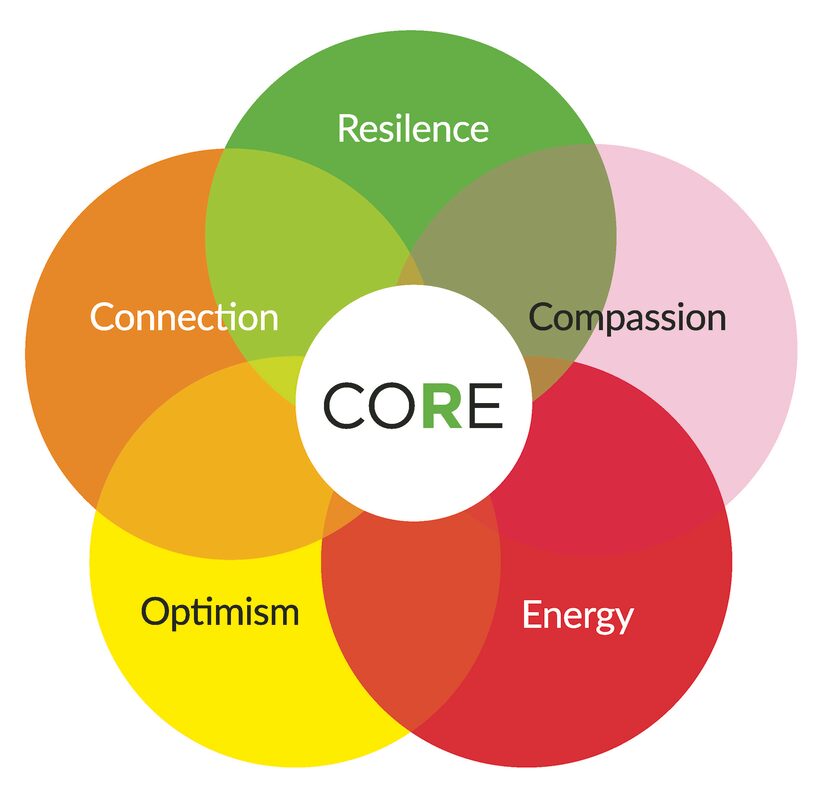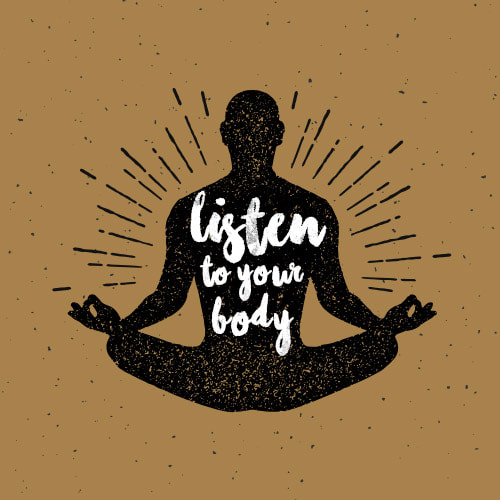 Takeaways: • Self-assessment techniques can be as effective as clinical measures for stress • Regular stress awareness can lead to better physical and mental health • Developing stress coping skills is crucial for managing stress effectively Most online stress measurement tools use a "life-event" method to determine your stress levels. They consider major events like divorce, job loss, or illness as indicators of high stress. However, this approach doesn't account for daily activities and how we react to them. Smaller but significant stressors, like a difficult boss or challenging relationships, can build up over time. A better way to assess stress is similar to how we measure exercise intensity. The Rating of Perceived Exertion (RPE) scale lets you estimate how hard you're working out without special equipment. You rate your effort from 6 (no exertion) to 20 (very intense). This method is often as accurate as using heart rate monitors. Dr. Sheldon Cohen of Carnegie Mellon University developed a similar technique for stress called the Perceived Stress Scale (PSS). It asks you to estimate your stress based on uncertainty, lack of control, and overload in various areas of your life. You can find online tests based on this method to self-assess your stress levels. I prefer a printed version of this test. It takes just a few minutes to complete the list. https://www.das.nh.gov/wellness/Docs%5CPercieved%20Stress%20Scale.pdf (If this link does not work – use keyword Cohen PSS in your favorite search engine) I like the online tool for Cohen PSS - by Kresser Institute because it does not require you to provide an email address. You can share your email if you want a copy of the test. I just use the copy and paste option. kresserinstitute.com/tools/pss/ The importance of stress awareness cannot be overstated. Research has shown that individuals with higher perceived stress, as measured by the PSS, often face more significant health challenges. For example, higher PSS scores have been associated with:
These findings highlight why monitoring your stress levels is crucial for maintaining good health. By recognizing our stress levels, we can take steps to reduce them and potentially avoid these negative health outcomes. To effectively manage stress, it's important to develop coping skills. There are two broad ways to deal with stress - directly and indirectly. Direct stress-coping skills address the underlying cause of stress, such as time management, organization, assertiveness, and asking for help. Indirect stress-coping skills help you feel better despite your stress, like regular exercise, spending time in nature, engaging in social activities, and taking time to relax every day. Building these stress management skills takes effort and time. A lot of stress management has to do with fundamental life habits - sleep, diet, and exercise, as well as engaging in your community and taking time to do the things you enjoy. Action Steps:
By focusing on stress awareness and developing effective coping strategies, we can take control of our mental and physical health. Remember, understanding your stress is the first step towards managing it effectively. We'd love to hear about your own methods for assessing and managing stress levels! If you're interested in one-on-one coaching (remote or face-to-face) on using your smartwatch to monitor stress levels or developing personalized stress management strategies, please reach out using the registration form on our workshop page. Your experiences and insights can help you and others on their journey to better stress management and overall well-being. Please remember these tests and screenings are not a substitute for a clinical evaluation. Contact a health professional for more information and a complete exam.
0 Comments
” If you listen to your body when it whispers….you won’t have to hear it scream.”
Takeaway #1: Emotions like anger and anxiety are signals, often suggesting important actions we need to take. Takeaway #2: Meditation and journaling help us identify and understand that stress comes from our thoughts and perceptions. Takeaway #3: By listening to our bodies and regulating our breathing, we can control our emotions and build resilience. John, an engineer, felt angry and anxious at work. He thought his boss disliked him, leading to backaches, headaches, and stomach issues. John felt depressed about going to work. A friend suggested he come to me for meditation coaching. As John practiced meditation daily, he noticed physical symptoms like butterflies in his stomach and tension in his neck and shoulders. He realized that relaxation is a by-product of meditation, but the primary goal is to understand the mind. Stress comes from our thoughts, stories, and how we choose to view life. Feelings like anger and anxiety are signals, often present as tension or pain in the body, and can suggest important actions we need to take. The main step John learned was to listen to his body because strong emotions like joy, anger, anxiety, and pleasure are felt physically. As a regular yoga practitioner, John could understand and respond to these signals. He learned to relax his body within minutes by paying attention to tense areas. John leveraged anxiety and stress to focus on work and let go when he came home. His regular walks and yoga practice helped him find balance, reducing headaches and backaches while improving sleep. Mental training for toughness and resilience involves:
Action Item #1: Practice daily meditation or journaling with a device to measure relaxation levels – 10-15 minutes, in addition to yoga or exercise. Note how you feel in a relaxed state and journal the locations of stress (back, jaw, heart area, etc.). Action Item #2: Work on 1-2 daily activities aligned with your values and long-term goals – fun and meaningful activities. Notice the sensations in your body when you're excited and energized. Action Item #3: Plan ahead for anxious and stressful events. Mentally rehearse conversations with your spouse, boss, or challenging situations, and note the signals your body gives you in terms of breathing, muscle tension, and heart rate. Do these regularly, and you'll see improvement in your heart, brain, and progress in handling anger, stress, or anxiety. Want to learn more: Check out our workshops and one-on-one coaching. Mental training is not just about meditating, mindfulness, or relaxation. You can measure your progress by tracking changes in skin temperature, heart rate, and breathing. You can use your smart watch to rapidly train your body and mind for love, peace, and joy. Bob had been struggling with depression and anxiety for a while. He felt exhausted, pessimistic, and helpless most days. His negative thoughts seemed to fuel his anxiety, creating a vicious cycle. At our workshop, Bob learned that depression and anxiety often go hand-in-hand and can be made worse by negative thinking patterns. He was relieved to know that his experiences were common and that there were actions he could take to manage his symptoms - often 3 minutes or less in duration Takeaway #1: Depression and anxiety feed off each other through negative thought cycles. Our workshop taught Bob some simple habits that could help break this cycle. First, he learned mindfulness techniques to stay present in the moment instead of getting caught up in worries about the future or regrets about the past. These included simple breathing exercises and body movements. Takeaway #2: Mindfulness, avoiding triggers, nutrition, and exercise can help. Bob started practicing deep breathing exercises and writing in a gratitude journal each morning. He also identified triggers that worsened his anxiety, like lack of sleep and unhealthy eating habits, and made adjustments. Another key takeaway was that anxiety can actually be motivating when controlled, but it becomes debilitating when it controls us. The workshop provided a three-step process for managing anxiety (3 minutes or less in duration - with practice):
Bob diligently applied these steps whenever he felt anxiety rising or felt depressed. He would pause, take deep slow breaths as taught in the workshop, and write about what was worrying him. Then he'd go for a walk, color in a book, or dance - whatever helped his body relax. Within a few weeks of consistently using these techniques, Bob noticed a remarkable improvement in his depression and anxiety levels. His negative thought patterns loosened their grip, and he felt more hopeful and energized. He was amazed at how such simple practices could have such a positive impact in a short time. Bob's journey showed him that while depression and anxiety can feel overwhelming, they are manageable conditions. With patience, self-compassion, and the right mindset and habits, he regained control over his mental health. Action Step #1: Pause Observe your anxiety. For most of us, it manifests as rapid heart rates, breathing, and sweating. Sit down, write a blessing like "May I be happy and peaceful," place your palms over your belly, and observe your breath. This pause can interrupt our negative bias. (See meditation link below) Action Step #2: Reflect Grab a pad of paper and write down what's worrying you. Writing slows down your thinking and allows you to look at your fears with a more balanced perspective. Write the worst-case scenario and then consider other possible outcomes. Talking to a trusted friend or family member can also help. Action Step #3: Act Physical activity is important for most of us. Go for a walk around the block or up and down the stairs. Color in a coloring book for 5-10 minutes. Dance to your favorite relaxing music. Try a "Blessing Meditation" (check the link for more details: https://www.meditation-magic.com/blog/key-to-happiness-cultivate-our-capacity-for-kindness). Be patient and kind to yourself. Gently remind yourself, "This too shall pass." The more you practice these three steps (Pause, Reflect, and Act), the more you'll train your brain for love, peace, and joy.  CORE for Coping: How Daily Habits Build Resilience Against Stress Learn to flip the script on stress, using it as fuel to ignite focus, resilience, and peak performance. Say goodbye to the ‘stress monster’ myth and embrace a growth mindset that conquers challenges. Much like athletes evaluate their physical fitness using metrics like strength and endurance, we can measure our overall wellness using the CORE principles: Connections, Optimism, Resilience, and Energy. Strengthening these aspects of our lives helps us thrive even under stress. What is CORE?
Perfection in every CORE element isn't the goal. We all have low-energy days or moments of pessimism. The key lies in creating small, consistent daily practices that enhance your CORE strength. These habits have the power to dramatically transform your attitude, health, and relationships. Kickstart Your Day with CORE Choose at least one mini-exercise from each category:
Want some simple physical exercises based on Tai Chi and Chi Gong, check out this video Confession: I Procrastinate
I procrastinate. I like to consider myself organized and good with time management, but for boring or tedious tasks, I find myself chatting with friends, reading, checking emails, or scrolling through social media. Research shows that procrastination is common, affecting about 95% of us. Why? We simply have too much to do and not enough time. So we delay tasks or decisions. It happens! For instance, this article started two months ago as a way to offer tips to you, the reader, on overcoming procrastination. There's no strict deadline for my blog posts, and this delay actually allowed me to see the topic from a fresh perspective. Traditional Approach: Time Management and Procrastination One in five of us are chronic procrastinators. This constant delay on important tasks and decisions can affect our health, relationships, and work. We need to take action and be efficient and effective in those areas. Here's a helpful equation by procrastination researcher Piers Steel to understand why we procrastinate: Motivation = (Expectancy x Value) / (Impulsiveness x Delay) Procrastination happens when our motivation is low.
If you're still reading, you're probably someone who procrastinates but it doesn't negatively impact you much. You're here to learn how to be more effective with your procrastination. Research shows that some delay and reflection on tasks and decisions can prevent mistakes and improve results. Here's a mindfulness approach to procrastination: Regularly review your tasks and decisions and categorize them into four buckets:
The Pomodoro Technique: Beat Procrastination! The Pomodoro Technique, developed by Francesco Cirillo in 1992, is a powerful tool against procrastination. Here's how it works:
For more details on the Pomodoro Technique, check out the following resources: Check out this cool 2 page handout at UCSD for building your motivation. https://caps.ucsd.edu/_files/handouts/handout_buildingmotivation.pdf Frank Partnoy (2012) Wait: The Art and Science of Delay Hardcover 2012 Steel Piers (2012)The Procrastination Equation: How to Stop Putting Things Off and Start Getting Stuff Done Measures of Procrastination Try these online tools http://procrastinus.com/procrastination/measure-my-procrastination-3/ http://testyourself.psychtests.com/testid/2118 https://www.mindtools.com/pages/article/newHTE_99.htm http://www.tulane.edu/~rice/tdp/pscore.htm |
a guided finger meditationEngage your senses with soothing music, guided imagery and a labyrinth tracing activity which leverages the power of touch. Click the album cover to learn more. Categories
All
|



 RSS Feed
RSS Feed